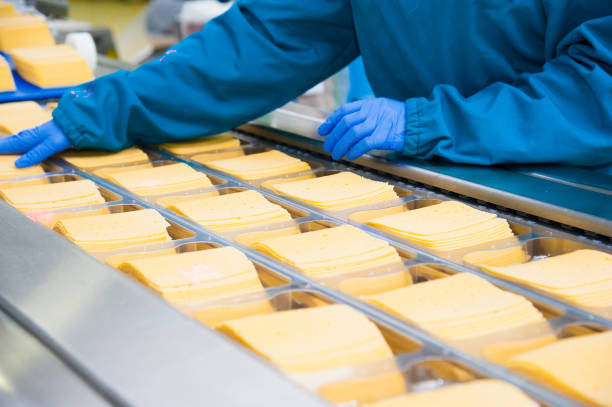Cheese Factory Melbourne: Experience the Art of Cheese
Cheese Factory Melbourne: Experience the Art of Cheese
Blog Article
A Thorough Take A Look At Cheese Production: Active Ingredients, Approaches, and the Future of Artisan Cheeses
The elaborate procedure of cheese production is a remarkable convergence of art and scientific research, where top quality milk, rennet, and certain bacterial cultures offer as foundational components. As the market increasingly prioritizes sustainability and openness, the future of artisan cheeses promises to reflect both heritage and development.
Key Ingredients in Cheese Production
A range of necessary ingredients play a pivotal function in cheese production, each adding to the final product's flavor, structure, and character. The main component in cheese is milk, which can originate from numerous resources, including cows, goats, and lamb - cheese factory melbourne. The kind of milk utilized substantially affects celebrity's preference and uniformity; as an example, cow's milk normally generates creamier cheeses, while goat's milk frequently produces tangy varieties
An additional vital ingredient is rennet, an enzyme utilized to curdle the milk, dividing it into curds and whey. The resource of rennet can be animal, vegetable, or microbial, each giving distinct attributes to the cheese.
Salt not just enhances the flavor yet likewise acts as a preservative, preventing the growth of unfavorable microorganisms. Additionally, various flavoring agents, such as herbs, flavors, or also smoked wood, can be included in produce one-of-a-kind artisanal cheeses. With each other, these components form the structure of cheese manufacturing, setting the phase for diverse and rich cheese varieties.
Typical Cheese-Making Methods
Utilizing standard cheese-making techniques, artisans around the globe maintain classic methods that have actually been given via generations. These methods commonly stress making use of high-quality, locally sourced milk, which is main to the unique flavors and appearances of artisanal cheeses. The procedure commonly starts with the mindful home heating of milk, complied with by the enhancement of cultures and rennet to facilitate coagulation.
When the curds form, they are reduced, allowing whey to drain, an essential step that affects moisture web content and texture. Salting is an essential aspect of this process, enhancing taste while additionally acting as a chemical.
Aging, or affinage, is one more vital element, during which cheeses develop their characteristic fragrances and tastes. Artisans may employ specific aging atmospheres, utilizing moisture and temperature level controls to refine the cheese's profile. The commitment to these typical techniques not just sustains regional economies yet also adds to the rich diversity of cheese varieties discovered worldwide, commemorating cultural heritage and artisanal craftsmanship.
Modern Technologies in Cheese Manufacturing
Exactly how have technological innovations transformed cheese production in recent years? The assimilation of contemporary technology has changed both the performance and top quality of cheese manufacturing.
In addition, innovations in microbiology have enabled cheesemakers to pick specific bacterial societies and enzymes, optimizing taste profiles and enhancing life span. Making use of sensing unit technology for keeping an eye on fermentation problems has actually likewise ended up being widespread, enabling real-time modifications to maintain optimal environments for cheese aging.

These developments not just boost the top quality and sustainability of cheese production however additionally empower artisan producers to keep typical tastes while accepting modern-day efficiency. you could try these out As innovation proceeds to evolve, the future of cheese production looks appealing, blending visit here practice with advancement.
The Duty of Terroir in Cheese
In the realm of cheese manufacturing, terroir plays a critical function in specifying the distinctive qualities of numerous cheeses. Terroir, a French term generally connected with a glass of wine, includes the environmental factors that affect farming items, including soil make-up, environment, and neighborhood vegetation and fauna. In cheese-making, the one-of-a-kind qualities of the region where the milk is sourced can impart details flavors and appearances to the last item.
For example, the grazing conditions of milk pets considerably influence the milk's make-up, influenced by the kinds of lawns and natural herbs available in a certain area. This differs not just in between nations but also in between regions within the same nation. Additionally, the microbial areas present in the environment add to the fermentation processes, resulting in diverse profiles in flavor and aroma.
Cheeses such as Roquefort, Parmigiano-Reggiano, and Cheddar exhibit just how terroir can shape their identities, making them distinctive and commonly shielded by geographical signs. As manufacturers progressively acknowledge the relevance of terroir, there is an expanding focus on sourcing neighborhood active ingredients and preserving typical methods, ensuring that each cheese absolutely mirrors its beginning.

Future Trends in Artisan Cheeses
A significant change is happening in the go to these guys artisan cheese industry, driven by developing customer preferences and technical developments. Significantly, customers are gravitating toward special, high-quality products that emphasize both sustainability and local sourcing - cheese factory melbourne. This pattern is motivating artisan cheesemakers to innovate, concentrating on small-batch manufacturing and the usage of conventional methods while integrating modern-day innovation to boost quality and security
Additionally, there is an expanding interest in plant-based and different dairy items, pushing typical cheesemakers to discover brand-new avenues, such as cashew or almond-based cheeses. This change not only provides to dietary restrictions but likewise straightens with environmental problems concerning pet farming.
Furthermore, openness in sourcing and production processes is becoming extremely important. Consumers are much more educated and need traceability, prompting producers to embrace clearer labeling methods and participate in narration that highlights their techniques and values.
Final Thought
To conclude, the elaborate procedure of cheese production melds conventional methods with modern-day developments, causing a varied array of tastes and textures. The emphasis on top quality components and the influence of terroir underscore the virtuosity associated with cheese production. As the market evolves, a concentrate on sustainability and transparency will likely form the future of artisan cheeses, catering to a progressively discerning consumer base that values authenticity and craftsmanship in milk products.
Report this page